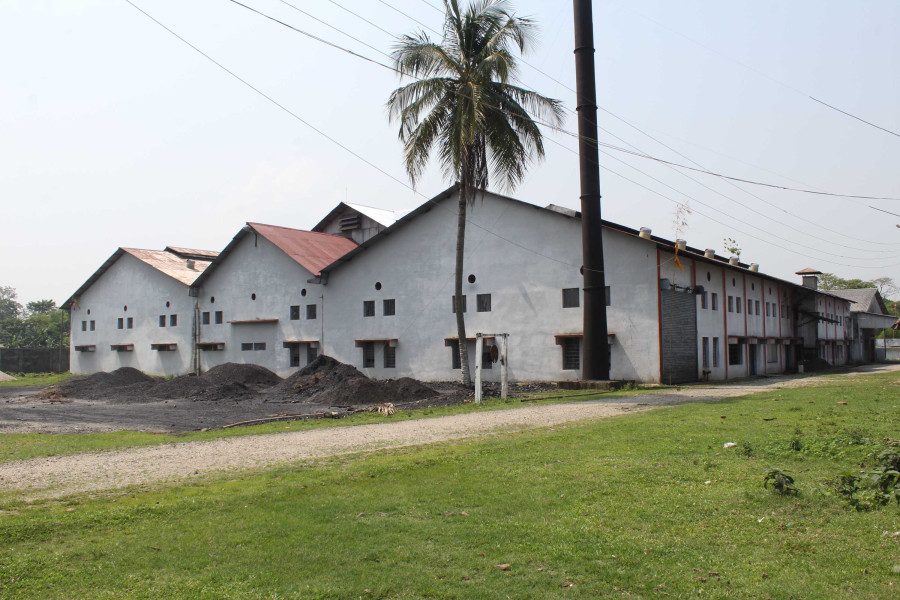Money
Losses to tea industry from workers’ strike top Rs 1 billion
There is no end in sight to the protest launched by tea workers in the eastern region which officials say is likely to cause tea production to fall by at least a fifth year-on-year. The agitation entered its sixth week on Monday, and production losses and lost wages are likely to mount, resulting in a dent in the country’s industrial output.
Arjun Rajbansi
There is no end in sight to the protest launched by tea workers in the eastern region which officials say is likely to cause tea production to fall by at least a fifth year-on-year. The agitation entered its sixth week on Monday, and production losses and lost wages are likely to mount, resulting in a dent in the country’s industrial output.
Losses to the tea industry, one of the country’s key foreign currency earning sectors, are estimated to have topped Rs1 billion—Rs640 million in production losses and Rs400 million in lost wages.
Tea estate workers launched their strike on April 1 demanding implementation of the monthly minimum wage and social security scheme guaranteed by new labour and social security laws. More than 30,000 tea estate workers have been hit as a result of the agitation.
Due to the delay in plucking tea leaves from the plants, the green tea leaves have matured and started to turn yellow. The regional office of the National Tea and Coffee Development Board in Birtamod has estimated that the country could lose 20 percent of its tea output this year.
Rajendra Singh Rajbansi, proprietor of Budhkaran and Sons Tea in Bhadrapur, said his factory normally produced 70 tonnes of processed tea during this time of the year. “The protest has caused huge losses for all tea producers.” Budhkaran’s tea estate is spread over 350 bighas of land.
Ram Ekwal Yadav, chief of the regional office of the National Tea and Coffee Development Board, said the agitation had resulted in a production loss of 4,000 tonnes of tea. Computed on the basis of the current market rate of Rs160 per kg, the production loss is valued at Rs640 million.
Tea factories in Jhapa produce 20,000 tonnes of CTC (crush, tear and curl) tea annually. CTC refers to a method of processing black tea in which tea leaves are run through cylindrical rollers that crush, tear and curl them. The protest has led to the closure of more than 80 big and 3,000 small tea factories.
Jhapa contains 11,500 hectares of tea gardens. The big tea estates occupy 7,725 hectares, and produce 12,000 tonnes of tea annually. The ongoing standoff has not only affected the factories, but also the workers.
Santa Kumar Rai, vice-president of the General Federation of Nepalese Trade Unions of Province 1, a trade union affiliated to the erstwhile CPN-UML, said the factory closures had resulted in lost income to the tea workers running into millions of rupees. “This is the peak season for the industry when earnings rise for workers.”
The government has made it mandatory for employers to pay industrial workers a minimum wage of Rs385 daily or Rs13,450 monthly and create a social security fund by this fiscal year, but tea factories have not implemented the rule. The agitating tea estate workers said that the factories had been paying them only Rs278 daily for the last nine months.
The new law requires employers to contribute an amount equal to 10 percent of the basic salary to the provident fund of temporary employees and pay bonuses. Likewise, under the insurance scheme, the employers have to contribute Rs700,000 as accident insurance for each worker. The scheme has mandated contribution from the employer of at least 50 percent of the employees’ health insurance premiums amounting to Rs100,000.
Tea factories expected to make a good harvest of quality leaves this spring due to a favourable winter rainfall, but the protest launched by tea workers has shattered their hopes, factory owners said. In the last fiscal year, the country exported tea worth Rs3.25 billion.




 9.63°C Kathmandu
9.63°C Kathmandu














